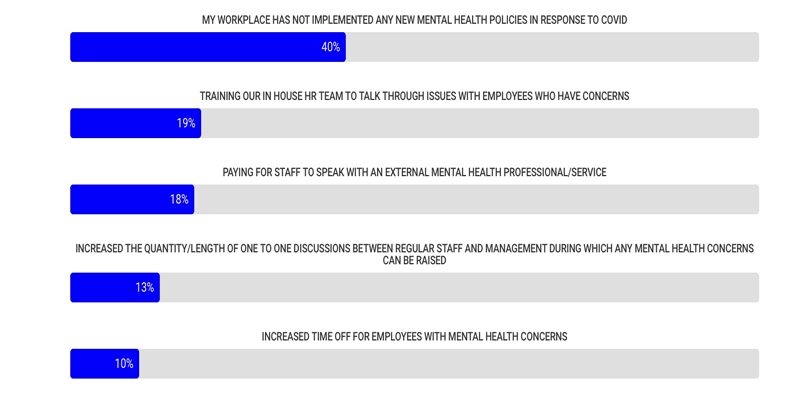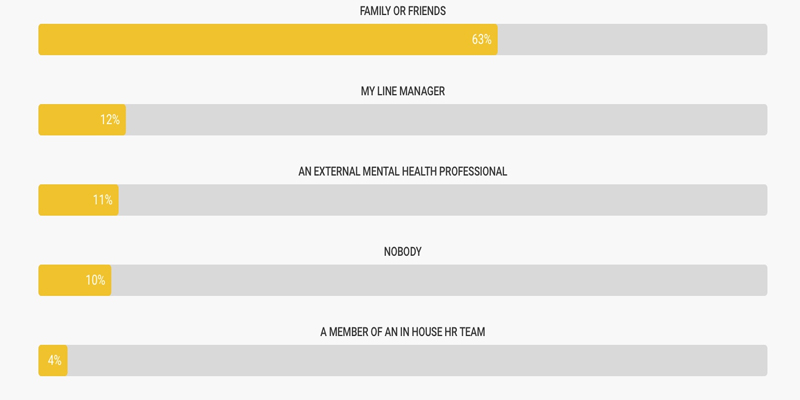Around 40% of UK workplaces have yet to implement any new mental health policies in response to the pandemic, according to a new study by CoursesOnline.
Of the 60% of organisations who have opted to bring in new policies to address Covid-related mental health issues, the most popular approaches were to assign responsibility for mental health matters to either an in-house (18%) or external specialist (19%).
There was less enthusiasm for increasing time off for staff with mental health concerns (just 10%); with many still placing a greater emphasis on existing staff/management discussions (13%), according to the research from the workforce training course comparison site.

DISCUSSING MENTAL HEALTH ISSUES
Yet, the research revealed the majority of staff (90%) stated that if they had a mental health concern, they would prefer to talk things through with a friend or family member before doing so with someone at work. Around 10%, however, said they would not speak to anyone about it. Approximately 70% of women stated that they would turn first to friends or family. However, 18% of men expressed a preference for talking things through with their line manager, compared to just 8% of women.
Nevertheless, moving forwards, 66% of staff believe more time and resources will be dedicated to mental health in the workplace due to Covid-19. CoursesOnline’s General Manager Sarah-Jane McQueen believes employers have a duty to invest in their people. “For the 40% of organisations not looking to do more in regards to mental health, there is a strong business case for them rethinking their approach; not to mention that there is a clear expectation from the majority of workers that some form of action is taken,” stated McQueen. “Regardless of where or how you operate, mental health issues account for a significant proportion of days off; so I would think that firms would be keen to gain back some of this productivity if nothing else.”

KEY RECOMMENDATIONS
So what can employers do to combat mental health issues in the workplace? Ultimately there are many different options through which organisations can look to address mental health issues; and everyone will have their own preference, noted the study. Online course provider, Learning People, for example, has experimented with numerous initiatives , such as:
- Creating an employee wellbeing group with a wellbeing rep nominated from each team to be the wellbeing spokesperson.
- All members of the employee wellbeing group are Mental Health Awareness trained by ‘Mind’ to ensure they know how to spot the signs of poor mental health and provide support where necessary.
- Participation in Time to Talk Day. Providing conversation starter cards and cakes to all employees to raise awareness of the importance of talking to others.
- Regular calls with HR for all employees who are working from home and more frequent calls with those who require additional mental health support.
- Discounted gym and fitness schemes due to the link between good physical and mental health.
Click here for more information.
Employee wellbeing is a ‘major priority’ for high-performing company chief executives, according to IBM’s latest Institute for Business Value study. Click here to read more.







































